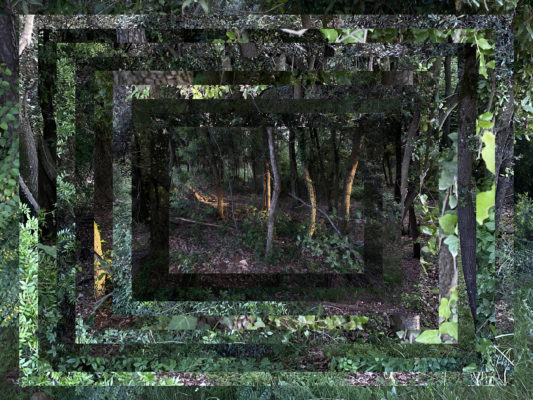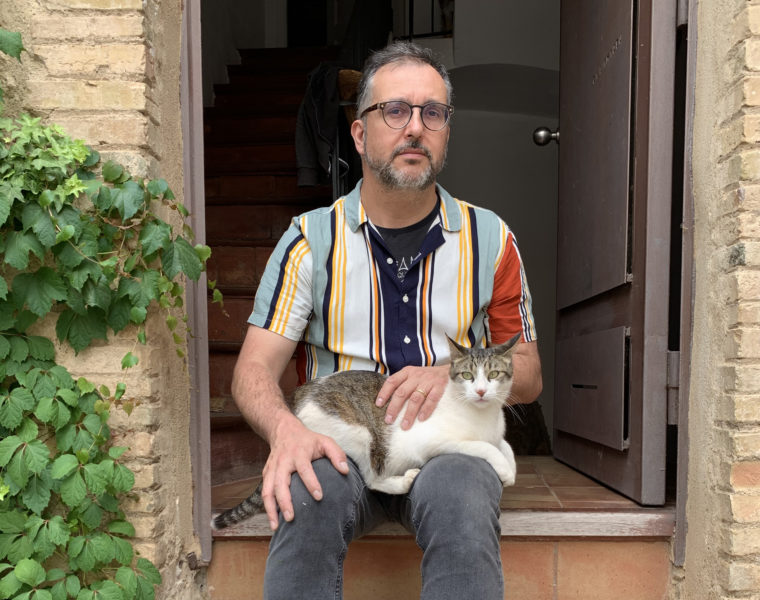Search
To search for an exact match, type the word or phrase you want in quotation marks.
A*DESK has been offering since 2002 contents about criticism and contemporary art. A*DESK has become consolidated thanks to all those who have believed in the project, all those who have followed us, debating, participating and collaborating. Many people have collaborated with A*DESK, and continue to do so. Their efforts, knowledge and belief in the project are what make it grow internationally. At A*DESK we have also generated work for over one hundred professionals in culture, from small collaborations with reviews and classes, to more prolonged and intense collaborations.
At A*DESK we believe in the need for free and universal access to culture and knowledge. We want to carry on being independent, remaining open to more ideas and opinions. If you believe in A*DESK, we need your backing to be able to continue. You can now participate in the project by supporting it. You can choose how much you want to contribute to the project.
You can decide how much you want to bring to the project.

We’re always the ones who get lost in places. A few years ago, I lost my bearings, as absorbed as I was with the mushrooms I was picking, and little by little, the forest caught up with me in all its luxuriance and the weight of the mystery, unbribable, of an implacable subtlety. A forest is the highest expression of tellurism. Tellurism, that word increasingly disconnected from our world, which is another world that we neither know nor can embrace.
*
The day I got lost in the woods, I remember it as a winter’s day, but clearly it was not. It wasn’t very cold, but I was wearing warm clothes. The sun was rising and the light was falling, the mobile phone there made no sense, no reception. Nor would it have been easy to indicate an exact point in that certain situation of incipient panic. Unless logic had become extreme and they had to geolocate me.
When I leave Falgars, in the middle of the afternoon and start walking up the mountain, entering without fear, very obsessed by the findings I make, following the ground with my eyes and the mucous membrane pulleys, milk caps, pine chanterelles- damned mushrooms! -, without raising my head, reconcentrated. I cannot imagine that that afternoon of pleasure turned into a nightmare. They say, the experts in mountains, that you have to keep on learning and, from time to time, fix some references, a kind of visual contact points in farmhouses, distant summits, stones or any shape that we can memorize… whatever it is, that at a given moment allows you to recognize and undo the path or at least have a spatial awareness of the landscape you are walking, to orient yourself, to know where you are, where you come from and where you have moved. Building this mental image of the journey was not in my plans and the mountain, apparently docile, rebelled against my arrogance. When I wanted to go back, I had no options. I had missed the spirit, as they said before, I was going round and round in the same place again and again. Then, yes, I was setting landmarks, but it was too late and it didn’t solve the main problem, finding a route and returning to the starting point. In a moment of lucidity or in the absurdity that encourages fools, I made a drastic decision, the best I could do was to go up the mountain.
*
Without further ado, I continue walking until I glimpse some forest tracks, firebreaks that line up religiously like scars, I cross very dense areas and follow large rounded rocks of these telluric, of a phantasmagoric but protective tellurism in this case. The path becomes more complicated in the last stretch, sometimes I don’t know how to advance. I don’t wear the right shoes either, I go on, sneakers, up, always up, but with the conviction of the lost ones, will I reach the sanctuary? Later I learned that I went around the mountain on the other side, where there is no official road, a temerity for a young man from the city like me. The scratched. I arrive broken to the top of the Mont, two hours later the Santuari de la Mare de Déu appears to me. I have arrived. What a break. Normally, this excursion from Falgars to the Monastery is done in less than an hour following the indicated path and is very popular with lovers of easy walks. In the mountain you can do everything, paragliding, climbing… I don’t know, that kind of things that I haven’t done and never will. It’s dark, the temperature must have dropped about three degrees, I see a man in the parking lot next to the only car left in the whole complex. All the way up thinking that I won’t meet anyone and that I’ll have to undo the road on the conventional road. Ironies of fate, I find a lonely hiker, is carrying something in the trunk of the car, I approach, I tell him that I’m lost and alludes. He must think… what’s a mushroom picker doing up here at this hour?
– Nobody ever gets lost around here – he tells me – where are you from? – he asks.
– From Lladó. – I answer in shame – Could you take me down to the Falgars turnoff?
– Of course, I won’t leave you up here. – Answer slyly.
I go back with him, we parade down the road, I’m exhausted, we walk along the road in silence, I give him part of the mushrooms when he stops the car, I don’t remember his name, maybe we haven’t even introduced ourselves.
*
Being attached or belonging to the earth can mean many things, fortunately my dyslexia always makes distinctions with words, deeds and meanings. In my career as an artist I have always been linked to places, but in a very limited and non-generic way. I don’t belong to any place and nothing belongs to me. I have tried to explain this many times without getting anyone to understand me. I’ve never felt I belonged to a specific place and I’ve never claimed to belong to a territory because I work or live there, do you understand? We come from where we come from and this does not make us from a place, it marks us and that’s it. All artists are local artists and at the same time global artist. We get lost in the forests that are close to our house, this is the question and it is a lesson in all rules and, well looked at, a good thing. Getting lost and finding our way is a way of defining as a job, what I am and what I like about the job I do. Getting lost in the woods is an experience that explains, in my opinion, the telluric fact from the present time, the strength of the places, the potentiality in front of smallness and stupidity, in front of an inaccessible meaning of nature and its laws. It is no joke to miss the spirit, many expert mushroom hunters have died in the forest, in some cases even their bodies have not been found. Now we will not go into details.
*
I have always been very perplexed by the word “telluric”, perhaps because of the difficulty of reaching a definition that fits it, or to be more exact, a definition that I can easily understand and explain. It’s one of those words that is complex in meaning, that moulds people, and this is its strength. I have fewer and fewer tools to explain it and perhaps that is why I must resort to this thread of texts proposed by David Armengol, who surely has his own idea of tellurism, as we all do. An approximate and exclusive idea that is difficult to encapsulate. Finding the way back is like finding the solution to a work, to any problem, to this text, to give an example. Right now I’m lost again, I’ll keep going up and maybe I’ll find some of the answers.
Lladó, June 1st, 2020

JORDI MITJÀ (Figueres, 1970). Tracker of the territory, heterogeneous ethnographer, amateur outsider, dyslexic, ultralocal flâneur… In his work, Jordi Mitjà continually plays between poetic language and social criticism. He often creates from an ambivalent process of accumulation and rejection, with discarded materials, situations or images that magnify and acquire new meanings when exhibited. He starts from a wide universe of references which he appropriates and transforms with an alchemist spirit, claiming the universal power of what is local as a strategy of resistance, through sculptures, drawings, publications, photographs, videos, texts and paintings.
"A desk is a dangerous place from which to watch the world" (John Le Carré)